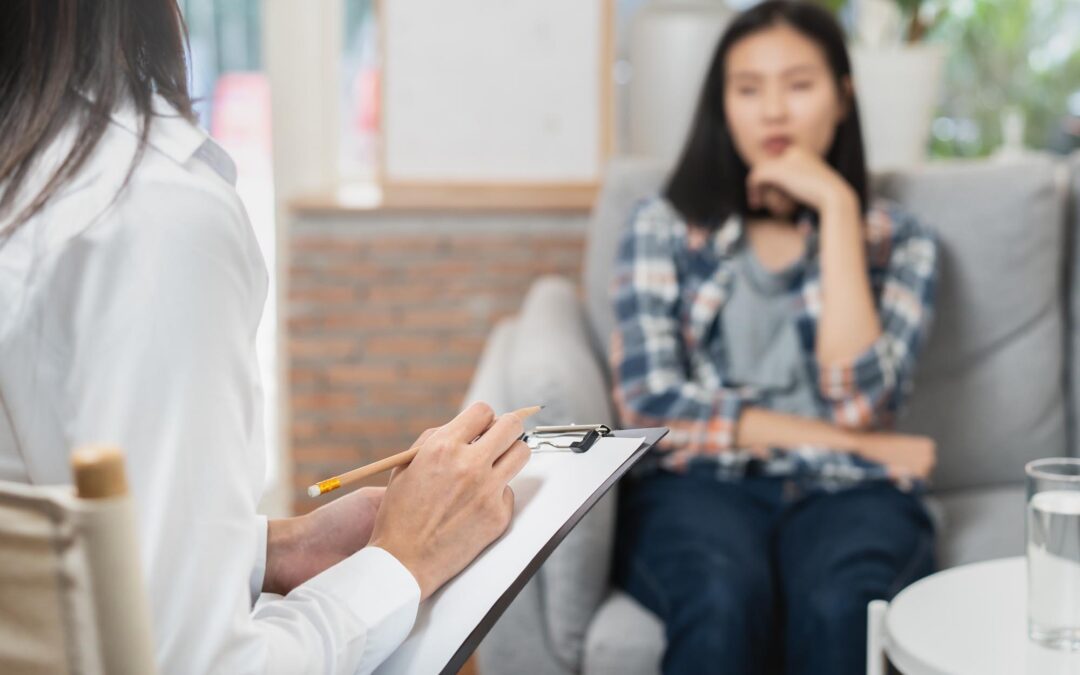Women facing addiction require a distinct approach to recovery that addresses their unique experiences and challenges. Personalized recovery programs recognize that women’s paths to healing differ significantly from traditional one-size-fits-all treatment models.
Research shows that women often develop substance use disorders through different pathways than men. These differences stem from:
- Hormonal influences affecting drug responses, which can be further explored in our article on hormones in women’s mental health
- Higher rates of trauma and abuse histories
- Increased likelihood of using substances to self-medicate emotional pain
- Greater susceptibility to mental health conditions like anxiety and depression
The journey to lasting sobriety becomes particularly complex when women face additional barriers such as:
- Primary caregiving responsibilities
- Financial dependencies
- Limited access to specialized treatment
- Social stigma and shame
Tailored therapy, such as those offered at LightWork Therapy and Recovery, creates a foundation for sustainable recovery by addressing these specific challenges head-on. We’ve witnessed how personalized treatment plans that consider a woman’s biological, psychological, and social needs lead to better outcomes.
By integrating evidence-based therapies with gender-specific support, women receive care that resonates with their lived experiences. This targeted approach helps build resilience, develop coping strategies, and create a support network essential for maintaining long-term sobriety. If you’re seeking help or more information, feel free to contact us.
Understanding Women’s Unique Recovery Needs
Women face distinct challenges in addiction recovery that require specialized treatment approaches. Research shows women develop substance dependencies faster than men and experience more severe health consequences from prolonged substance use.
Biological Factors
- Hormonal fluctuations affect substance cravings and withdrawal symptoms
- Higher body fat percentage influences how drugs are metabolized
- Greater susceptibility to organ damage from alcohol and drugs
Psychological Considerations
- Higher rates of trauma and PTSD among women with addiction
- Increased vulnerability to anxiety and depressive disorders
- Self-medication often stems from emotional pain or past experiences
Social Dynamics
- Primary caregiving responsibilities impact treatment decisions
- Relationship-based patterns of substance use
- Greater stigma and shame around seeking help
Women commonly experience co-occurring mental health conditions that complicate recovery:
- Depression (affects 1 in 4 women in treatment)
- Anxiety disorders
- Eating disorders
- PTSD from physical or sexual trauma
Gender-sensitive addiction programs address these unique needs through:
- Trauma-informed therapy approaches
- Women-only support groups
- Treatment for co-occurring disorders
- Focus on building healthy relationships
- Parenting skills development
- Body image and self-esteem work
These specialized programs, such as those offered by Lightwork, create safe spaces where women can openly discuss gender-specific challenges without judgment. Treatment success rates improve significantly when programs incorporate these elements into their recovery framework.
Barriers to Substance Abuse Treatment for Women
Women face distinct challenges when seeking addiction treatment, creating significant roadblocks to recovery. These barriers often prevent them from accessing essential care or completing their treatment programs.
Family Responsibilities
- Primary caregiving duties for children or elderly family members
- Limited access to reliable childcare during treatment sessions
- Fear of losing custody of children when seeking help
- Pressure to maintain household stability
Economic Challenges
- Lack of health insurance coverage
- Limited financial resources for treatment costs
- Transportation difficulties to treatment facilities
- Potential loss of income during recovery periods
Social Stigma and Shame
- Heightened judgment from family and community
- Professional reputation concerns
- Cultural expectations and gender roles
- Fear of being labeled an “unfit mother”
Programs offering comprehensive support services help women overcome these barriers. Treatment centers providing on-site childcare allow mothers to focus on their recovery while maintaining their parental responsibilities. Flexible scheduling options accommodate work commitments, and sliding-scale payment plans make treatment more accessible.
Wraparound services create successful pathways to recovery by addressing:
- Transportation assistance
- Housing support
- Job training programs
- Parenting skills development
- Legal advocacy
- Healthcare coordination
These integrated support systems significantly improve treatment initiation rates and long-term engagement in recovery programs. Centers like LightWork Therapy recognize these challenges and incorporate practical solutions into their treatment models.
Components of Personalized Recovery Programs for Women
Effective recovery programs for women start with comprehensive assessments that examine multiple factors:
- Genetic predispositions and family history
- Past trauma and life experiences
- Current mental health status
- Physical health evaluation
- Substance use patterns and triggers
- Family dynamics and support systems
These detailed assessments help create individualized treatment plans that address each woman’s specific needs and challenges.
Evidence-based therapeutic approaches, such as those detailed in the Evidence-based practices resource center, form the core of personalized recovery programs:
- Cognitive Behavioral Therapy (CBT) – helps identify and modify negative thought patterns
- Dialectical Behavior Therapy (DBT) – teaches emotional regulation and mindfulness
- Group counseling sessions focused on women-specific issues
- Individual therapy addressing personal trauma and relationships
The integration of medication management with holistic practices creates a well-rounded treatment approach:
- Medication-Assisted Treatment (MAT) when appropriate
- Nutritional counseling and meal planning
- Exercise programs tailored to individual fitness levels
- Mindfulness and meditation practices
- Art therapy and creative expression
- Stress management techniques
Programs at LightWork Therapy and Recovery combine these elements to create personalized treatment paths that evolve with each woman’s progress. Regular assessments ensure treatment plans remain aligned with changing needs and goals throughout the recovery journey.
Benefits of Women-Only Substance Abuse Programs
Women-only substance abuse programs, such as those offered by Revelare Recovery in Georgia, create safe spaces where participants can openly discuss gender-specific challenges without fear of judgment. These specialized environments allow women to address sensitive topics like domestic violence, sexual trauma, or pregnancy-related concerns in a supportive setting.
Research-backed Effectiveness
Research demonstrates the effectiveness of gender-specific treatment programs:
- Studies show 83% higher completion rates in women-only programs compared to mixed-gender facilities
- Participants report feeling more comfortable sharing personal experiences
- Women experience reduced risk of romantic distractions that can derail recovery
Personalized Care and Support
Leading women’s recovery centers maintain professional-to-client ratios of 1:6 or better, ensuring personalized attention and comprehensive care. These programs typically offer:
- 24/7 medical supervision
- Gender-specific group therapy sessions
- Specialized care for pregnant women
- Trauma-informed treatment approaches
Building Trust and Connections
The nurturing environment of women-only programs helps build trust and authentic connections between participants. Women can focus entirely on their recovery journey without navigating complex gender dynamics or feeling pressure to maintain certain appearances.
Extended Care for Lasting Change
Many facilities offer extended care options ranging from 30 to 90 days, allowing women to:
- Build stronger recovery foundations
- Develop lasting support networks
- Practice new coping skills
- Address underlying trauma in a safe space
These gender-sensitive programs recognize that women face unique societal pressures and expectations. By removing mixed-gender dynamics, participants can fully engage in their recovery process and build authentic connections with peers who truly understand their experiences.
Addressing Mental Health in Women’s Recovery Journey
Mental health care plays a vital role in women’s addiction recovery. Research shows that 65% of women seeking substance abuse treatment have at least one co-occurring mental health condition. This dual diagnosis requires an integrated treatment approach for lasting recovery success.
Key Mental Health Considerations:
- Depression and anxiety disorders
- Post-traumatic stress disorder (PTSD)
- Eating disorders
- Bipolar disorder
Trauma-informed therapy creates a foundation for emotional healing. This specialized approach helps women:
- Process past experiences safely
- Build healthy coping mechanisms
- Develop emotional regulation skills
- Establish boundaries in relationships
The most effective mental health treatments combine evidence-based therapies:
- Cognitive Behavioral Therapy (CBT)
- Eye Movement Desensitization and Reprocessing (EMDR)
- Dialectical Behavior Therapy (DBT)
- Group therapy sessions
Long-term care includes regular therapy sessions, medication management when needed, stress reduction techniques, and lifestyle modifications. For those requiring more intensive support, a day treatment program may be beneficial.
Women who receive integrated dual diagnosis treatment show significantly lower relapse rates. Studies indicate a 60% reduction in substance use when mental health conditions receive simultaneous treatment. This comprehensive approach addresses root causes while building resilience for sustained recovery.
For those seeking help, Lightwork Therapy & Recovery offers specialized mental health treatment programs in Woburn, Massachusetts.
Overcoming Economic Challenges in Accessing Care
Financial barriers are significant obstacles between women and quality addiction treatment. The harsh reality of treatment costs – ranging from $5,000 to $50,000 per month – creates immediate access barriers for many women seeking help.
Common Financial Obstacles:
- Limited or no health insurance coverage
- High deductibles and copayments
- Insufficient coverage for specialized women’s programs
- Loss of income during treatment periods
Many treatment centers recognize these challenges and offer creative solutions to make care accessible. Sliding scale payment options adjust fees based on income levels, while scholarship programs help cover treatment gaps. Some facilities partner with financing companies to create manageable payment plans.
Resources for Financial Assistance:
- State-funded treatment programs
- Non-profit organizations offering treatment grants
- Healthcare credit options
- Insurance navigation support services
The landscape of insurance coverage continues evolving. Recent legislative changes require insurance companies to cover mental health and substance use treatment. Yet gaps remain in coverage for gender-specific programs. Active advocacy efforts push for expanded coverage of women-specific treatment services, including childcare support and comprehensive mental health care.
LightWork Therapy and Recovery works with various insurance providers and offers flexible payment options to ensure women receive necessary care regardless of financial circumstances. Their team helps navigate insurance benefits and connects clients with additional funding resources when needed.
Additionally, women in rural areas can access affordable healthcare services through Federally Qualified Health Centers, which provide comprehensive services regardless of a patient’s ability to pay.
Enhancing Social Support Systems During Recovery
Strong social networks create a vital foundation for women’s recovery success. Research shows women with robust support systems maintain sobriety rates up to 50% higher than those recovering in isolation.
Family Support Groups
Family members play a crucial role in supporting women on their recovery journey. To strengthen relationships and promote healing, family support groups offer various resources and activities:
- Weekly family therapy sessions
- Educational workshops for loved ones
- Structured communication exercises
- Healing damaged relationships
- Setting healthy boundaries
Parenting Communities
Women in recovery often face unique challenges as mothers. Connecting with other mothers who understand these difficulties can be immensely beneficial. Specialized parenting communities, like Parents Helping Parents, provide a platform for sharing experiences and accessing valuable resources:
- Childcare management strategies
- Stress reduction techniques
- Positive discipline methods
- Age-appropriate addiction education
- Co-parenting support
Community-Based Services
Accountability is a key component of successful recovery. Community-based services offer wraparound support to help women stay on track with their goals:
- Regular check-ins with recovery coaches
- Peer mentorship programs
- Life skills workshops
- Job training opportunities
- Housing assistance
Integrating family responsibilities into treatment plans helps mothers maintain focus on recovery while caring for their children. Programs offering flexible scheduling, on-site childcare, and parenting skills training see higher completion rates among mothers in treatment.
Local support groups create lasting connections between women sharing similar experiences. These relationships often extend beyond formal treatment, providing ongoing encouragement and accountability throughout the recovery journey.
Measuring Success: Treatment Outcomes & Relapse Prevention
Research data consistently demonstrates the superior effectiveness of personalized treatment approaches for women. Studies show that women in gender-specific programs experience 40% higher completion rates compared to mixed-gender settings, with sustained sobriety rates reaching 65% after one year.
Women face distinct relapse triggers that require targeted intervention strategies:
- Emotional stress – Personalized therapy equips women with specific coping mechanisms for managing anxiety, depression, and relationship challenges. Therapy plays a crucial role here.
- Hormonal fluctuations – Treatment plans incorporate hormone-sensitive approaches that address biological factors affecting cravings and mood
- Relationship dynamics – Specialized programs help women navigate codependency issues and establish healthy boundaries
- Work-life balance – Tailored support systems assist in managing career pressures while maintaining recovery goals
Successful treatment plans evolve with each woman’s changing needs. Regular assessments track progress across multiple dimensions:
- Physical health markers
- Mental wellness indicators
- Social support network strength
- Career and educational goals
- Family relationship dynamics
Treatment centers like LightWork Therapy and Recovery implement dynamic adjustment protocols, allowing therapeutic approaches to shift as women progress through different recovery stages. This adaptability ensures that support remains relevant and effective throughout the recovery journey.
Data shows that women receiving personalized care demonstrate a 75% reduction in relapse incidents during the first critical year of recovery, compared to standardized treatment approaches. It’s important to note that untreated opiate addiction can have long-term effects, making timely intervention essential.
Conclusion
Personalized recovery strategies are changing the game for women’s addiction treatment. They go beyond one-size-fits-all approaches by taking into account each woman’s unique journey and needs.
Research consistently shows that women do better in programs designed specifically for them, where they receive evidence-based care delivered with compassion. These specialized methods understand that every woman has her own path to recovery, influenced by her experiences and strengths.
The success of tailored therapy lies in its ability to:
- Address trauma and mental health concerns at the same time
- Provide support systems centered around women
- Adapt treatment plans as recovery progresses
- Incorporate holistic healing methods
- Support family relationships and responsibilities
Your path to lasting recovery starts here. LightWork Therapy and Recovery offers customized mental health treatment programs designed specifically for women. Our experienced team understands the unique emotional and psychological challenges women face and provides compassionate, individualized care to support lasting healing.
Ready to begin your journey? Contact LightWork Therapy and Recovery today to learn more about our personalized mental health services for women. If you or someone you love is also facing substance use challenges, Revelare Recovery is a women’s-only treatment center in Atlanta, GA that specializes in comprehensive substance abuse and mental health care.
Your strength deserves specialized support. Take the first step toward lasting sobriety with a program designed for you.





